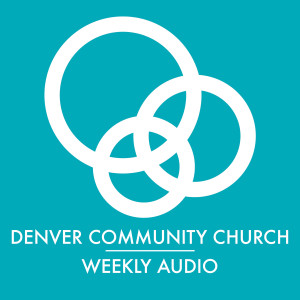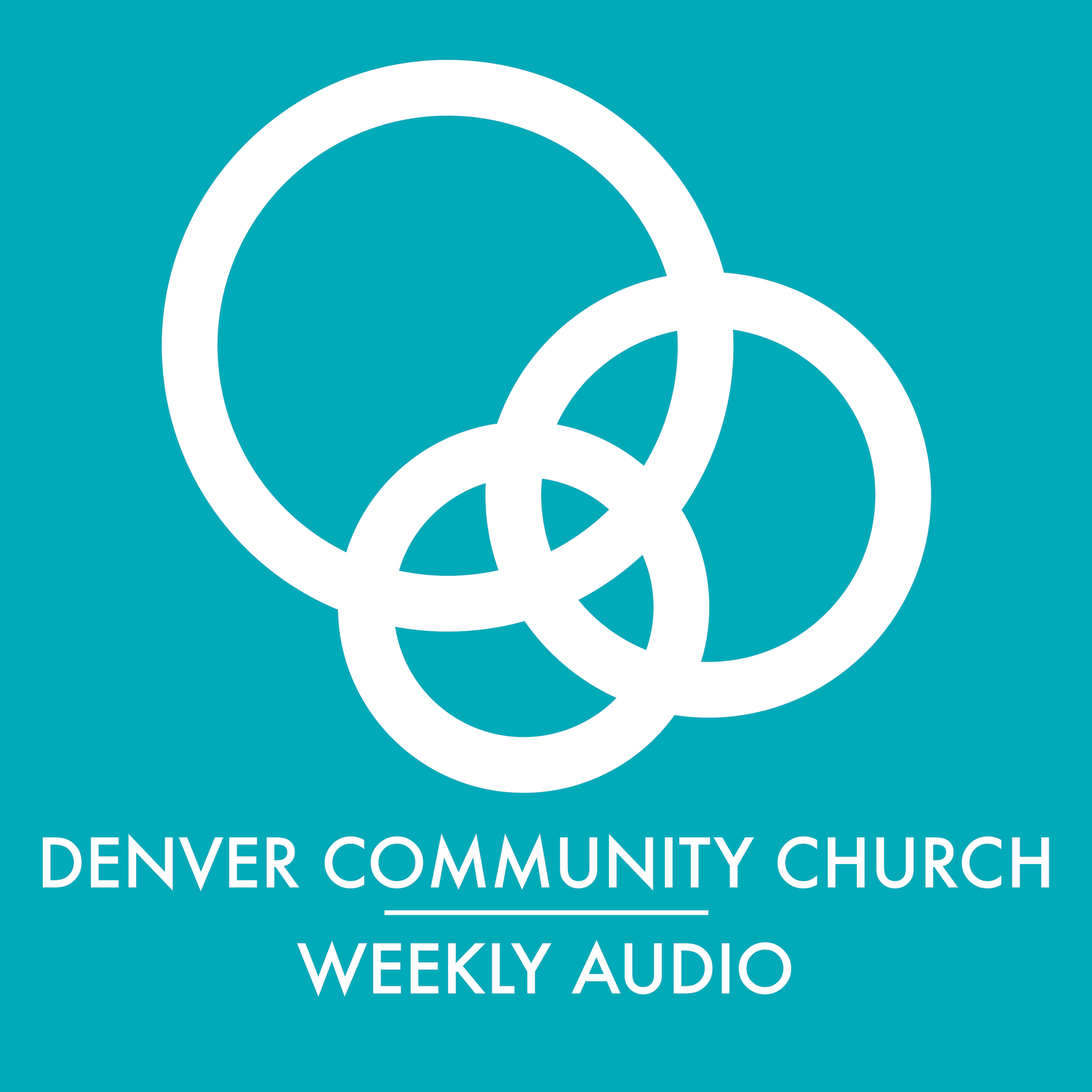Episodes

Sunday Mar 08, 2009
March 8, 2009: Can You Babysit?; Give It Up, Part 2 – Michael Hidalgo
Sunday Mar 08, 2009
Sunday Mar 08, 2009
How do you promise to give God something that you do not have? Looking at this story is interesting. Hannah wants a kid so she can give him away. Does God do bargains? For some reason God hears Hannah’s prayer. One interesting note is that Elkanah and Hannah go up to a yearly festival. This, some contend, is a festival of rejoicing and feasting, thanking God for the fruit he has provided. Is it any wonder that Hannah has a hard time celebrating? God finally allows her to become pregnant – and it is in that moment that she gives back to God – making good on her promise.

Sunday Mar 01, 2009
March 1, 2009: The One You Love; Give It Up, Part 1 – Michael Hidalgo
Sunday Mar 01, 2009
Sunday Mar 01, 2009
What would it be like to raise a knife up over your son? What would his face look like? What would you tell your wife when you got back home? Would “God told me to do it” really work? This is the place that Abraham finds himself. Yet, at the last moment God speaks to him and says, “Don’t do it … ever.” And he provides a ram in the thicket. This is more than a test for Abraham, this is a new turn in God’s relationship with humanity.
For Centuries humans had performed human sacrifices. Even sacrificing their own kids in the fire. For the first time, the “gods” said “No.” God did not need the blood of Abraham’s son – he was willing to offer up his own. We will focus on God asking Abraham to do this, and then forbidding a practice of human sacrifice – a practice that was meant to appease the gods. Never again does a father allow his son to die … that is until Jesus.

Sunday Feb 22, 2009
February 22, 2009: She Has a Nice Body – Michael Hidalgo
Sunday Feb 22, 2009
Sunday Feb 22, 2009
When people speak of the bride of Christ (the church) maybe they should be saying that “she has a nice body” – for we are to be Jesus in this world. Paul works through a comparison of the Church being the body and Christ being the head. This is an interesting analogy. This was a somewhat common analogy in the Roman Empire. Seneca – a famed poet wrote that the Empire was the Body, and that Nero (Caesar) was the head. He is borrowing from common lit to explain a greater truth.

Sunday Feb 15, 2009
February 15, 2009: Visibly Invisible – Michael Hidalgo
Sunday Feb 15, 2009
Sunday Feb 15, 2009
We spend so much time in angst about Creation. But what would an ancient person have heard? Was the Creation poem really written to fight against Darwin? How are we called to be a part of the continued creation of this world? How do we join God in a posture of continuing to create what he started? For the ancient person reading Genesis 1, she would have wondered where the chapters were that came before that. For there was not back-story on the Creator God. It seems, that God allows creation – the created – to point to him.

Sunday Feb 08, 2009
February 8, 2009: Moving Out on Eagle's Wings – Brian Gray
Sunday Feb 08, 2009
Sunday Feb 08, 2009
When one uses language regarding the “kingdom of this or that” in the ancient world there is a definite connection to politics and government. We see these as mere metaphors, but they are so much more. Kingdoms and empires were literal, shifting, and waging war all the time. If one needed to be rescued from one to move to another – there was something desperately wrong with that Empire. So what does it mean to inherit a kingdom? Are we all kings/queens? What does it mean to actually have an inheritance – was this for everyone? Slaves too?

Sunday Feb 01, 2009
February 1, 2009: That Sounds Smart – Michael Hidalgo
Sunday Feb 01, 2009
Sunday Feb 01, 2009
There is more to life than simply knowing a lot of things. For the first time in this letter we come across the words, “so that.” This is commonly referred to as the “hina” clause in Greek. Typically in the Greek world one would use this to explain why they were doing something. So for Paul, he is asking God to give the people wisdom and knowledge for a very specific reason – so that they may be able to live a life that is pleasing to God. We are never to take things and have them all for ourselves – but we are to live our lives in light of the “so that.” We are to love and encourage one another so that we can better love and serve our world. Praying for one another is never for our own sake but for the sake of others.

Sunday Jan 25, 2009
January 25, 2009: This Will Spread – Michael Hidalgo
Sunday Jan 25, 2009
Sunday Jan 25, 2009
The gospel is contagious … this is a natural progression. How then do we live as a crew that brings to gospel where we are all the time? How is it that this thing spreads? What are stories from Colosse? The promise of the gospel, the good news, is that it keeps spreading and cannot be contained.

Sunday Jan 18, 2009
January 18, 2009: Apples and Oranges – Michael Hidalgo
Sunday Jan 18, 2009
Sunday Jan 18, 2009
Their love and faith springs out of a hope in the gospel. Hasn’t the gospel already happened? Yet Paul still uses the language of “bearing fruit.” This is the language of covenant and creation. Throughout the Old Testament we hear God speaking to his people about “fruitfulness” and “being fruitful.” This is the language of growth, the language of renewal and the language of continued creation. This points toward a future – and this gives us our hope. God also speaks to his people Israel of what awaits them when they go to the promised land – a land that is fruitful. What does it mean to live as an Eschatological people? We will explore what it means to live as Kingdom citizens with a posture toward the future.

Sunday Jan 11, 2009
January 11, 2009: Brothers and Sisters – Michael Hidalgo
Sunday Jan 11, 2009
Sunday Jan 11, 2009
Paul is calling Timothy a brother, when he once called him a son. Before that Timothy was a Halfling – neither Jew or Gentile. Paul then calls all of the people who are a part of the Church Holy. This is interesting – have they fulfilled the command of God to “Be Holy” because He is holy? What does it mean to be holy anyway – just good, well behaved, mild mannered, attending church a lot? We will explore why we all are set apart for God’s purposes. (Note to Chris Stocker: We will have the entire book of Colossians read during the service by four volunteers.)

Sunday Jan 04, 2009
January 4, 2009: The Rhythm of God – Dave Meserve
Sunday Jan 04, 2009
Sunday Jan 04, 2009
In His wisdom, God does not spell out how we should conduct every minute of our lives. Yet, there are rhythms inherent in how He created us and our world. The Scriptures highlight three such rhythms to the generation of the Exodus. We will explore and seek to apply those ways to our lives in the 21st century.

